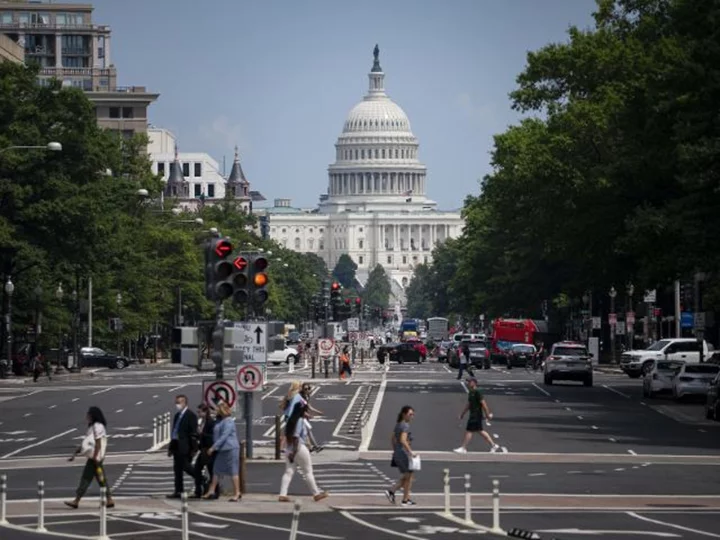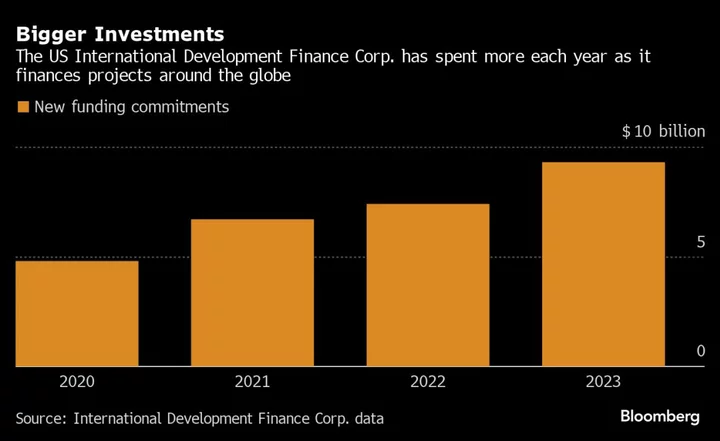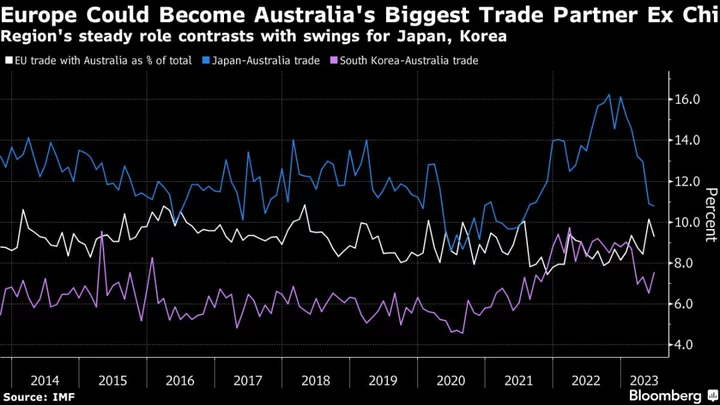There may not be any lasting major negative ramifications from the surprise US credit rating downgrade by Fitch this week — not for the economy, not for consumers and not for the government's ability to borrow.
Normally, when your credit score as a consumer falls — or your credit rating as a country — there are negative consequences. You're perceived as less creditworthy, and if you want to borrow money, you will be charged a higher interest rate. And, paying more interest will, in turn, further constrain your finances in the future.
Here's why the United States is unlikely to see that kind of impact from the Fitch downgrade.
The downgrade wasn't a huge drop
Fitch cut its US credit rating to AA+ from what had been a sterling AAA rating. In that, Fitch joined its competitor Standard & Poor's, which did the same thing back in 2011, when lawmakers really ramped up the brinkmanship over the perennial political fight over whether to raise the country's legal debt limit.
As a federal budget expert told CNN at the time, "We're the only developed nation in the world that talks openly about default."
That kind of fiscal brinkmanship has persisted in the years since.
Nevertheless, a drop from a AAA rating to AA+ is like downgrading your creditworthiness from extremely good to very good, said Marc Goldwein, senior vice president and senior policy director for the Committee for a Responsible Federal Budget.
In other words, you're still seen as highly creditworthy. And in the case of the United States, which is still widely considered a safe-haven investment relative to the rest of the world, that is unlikely to change any time soon.
"Ask global investors whose bonds they would rather own if push comes to shove in the global economy — it's those of the U.S. Treasury," said Mark Zandi, chief economist at Moody's Analytics, in a tweet Tuesday, adding that he believes Fitch's decision was "off base."
The reasons Fitch gave for its downgrade were not news
In explaining why it was downgrading the United States, Fitch cited "the expected fiscal deterioration over the next three years, a high and growing general government debt burden, and the erosion of governance relative to 'AA' and 'AAA' rated peers over the last two decades that has manifested in repeated debt limit standoffs and last-minute resolutions."
It's news to no one that the United States' debt is on an unsustainable course and that lawmakers have chosen dysfunctional and unproductive ways to address that fact.
For that reason, Fitch's downgrade has been largely dismissed by economists and analysts, especially since it comes two months after a deal was struck by lawmakers to raise the debt limit and reduce deficits by $1.5 trillion over the next decade.
"Treasury Secretary Yellen described [the data Fitch used] as 'outdated,' and that is very likely the market's stance too," said Jamie Dutta, market analyst at Vantage. "Most big Treasury holders will have already prepared for the move to avoid forced selling and, if anything, safe-haven demand supports US Treasuries in the short term."
What's more, Dutta added, "stocks were heading down [right] before the downgrade on softness in some earnings releases."
George Mateyo, chief investment officer at Key Private Bank, also believes Fitch's move won't make a big difference in the markets.
"Fitch's credit rating is an expression of the probability of a default. But the risk of a US default is still very low, and therefore we don't see this downgrade as having a lasting impact on the market. We believe US treasuries are safe and will continue to play a key role in many investors' portfolios," Mateyo said.
US debt may be bad, but the US economy is doing well
While the US debt situation may be unsustainable and a negative for the future prospects of the United States, the US economy — especially relative to other developed economies — has been doing quite well.
Inflation is at its lowest level since the spring of 2021, and economic growth, as measured by gross domestic product, was a robust 2.4% on an annualized basis in the second quarter.
Meanwhile, the eurozone only recently crawled out of a recession that started in the last quarter of 2022. And, relative to other G7 nations, the US economy has maintained the strongest GDP growth by far.
While economists see the debt situation as unsustainable in the long run, right now, they increasingly believe the US economy will have a "soft landing" — meaning it won't go into recession even though the Federal Reserve has hiked interest rates 11 times since March 2022 in a bid to curb inflation.
All that said, Fitch's downgrade is not a great look for the world's leading economy. And it may be a precursor of things to come.
"Fitch's downgrade could establish a precedent for its other credit-rating counterparts to follow," José Torres, senior economist at Interactive Brokers, told CNN.
Should Moody's Investors Service join Fitch and S&P and downgrade the US one or more notches, that might make more of a difference, Torres said. "Downgrades across all three major credit rating agencies could impact stock and rates markets adversely, as they would raise the cost of capital for corporates and the Treasury alike."
More than the downgrade, the fiscal situation could hurt wallets long term
While stocks saw a sell-off on Wednesday and yields on the 10- and 30-year Treasuries hit their highest levels since November, there were other factors besides the Fitch downgrade at play.
In any case, there could be some days of volatility ahead. But as with any other negative information or concern that moves markets, if you're a long term investor it's never a good idea to trade on the news itself because staying in the market is a more effective strategy for creating financial security than trying to time the market.
However, if yields on US bonds start to go much higher and stay there because investors continue to react negatively to the downgrade that may have a broader impact, making stocks less attractive than bonds.
In that case, "Asset valuations would come under significant pressure because the fixed-income market would serve as an even stronger alternative for investors," Torres said.
And it's worth noting that while people may dismiss Fitch's decision, they can't dismiss the underlying reasons for it. The US debt situation is unsustainable because it will increasingly crowd out the country's ability to pay for what Americans need and want in the years ahead.
Take interest on the debt. Since the United States spends more than it takes in through taxes and fees every year, it borrows to make up the difference so that it can pay all its bills, which it does without fail. That is why it is considered to be such a great credit risk.
But that debt comes at a cost in the form of interest owed to investors for lending money to Uncle Sam. And interest payments have been steadily rising, both because rates are moving higher in general and because the US debt load keeps growing.
In fiscal year 2022, the US paid $475 billion in interest — or 1.9% of gross domestic product. That amount will nearly triple to $1.4 trillion by 2033, or well over 3% of GDP, according to the CRFB's analysis of the Congressional Budget Office forecast.
What's more, CRFB noted, under the country's current fiscal trajectory, "by 2051, spending on interest will be the single largest line item in the federal budget, surpassing Social Security, Medicare, Medicaid, and all other mandatory and discretionary spending programs."
-- CNN's Krystal Hur and Allison Morrow contributed to this story









